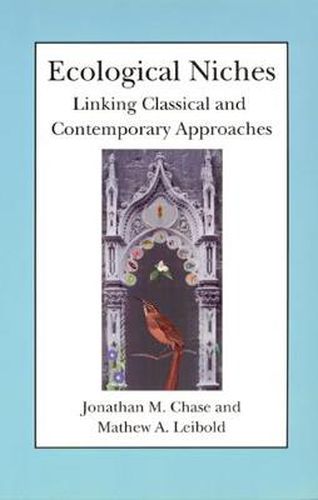Readings Newsletter
Become a Readings Member to make your shopping experience even easier.
Sign in or sign up for free!
You’re not far away from qualifying for FREE standard shipping within Australia
You’ve qualified for FREE standard shipping within Australia
The cart is loading…






Why do species live where they live? What determines the abundance and diversity of species in a given area? What role do species play in the functioning of entire ecosystems? All of these questions share a single core concept - the ecological niche. Although the niche concept has fallen into disfavour among ecologists in recent years, Jonathan M. Chase and Mathew A. Leibold argue that the niche is an ideal tool with which to unify disparate research and theoretical approaches in contemporary ecology. Chase and Leibold define the niche as including both what an organism needs from its environment and how that organism’s activities shape its environment. Drawing on the theory of consumer-resource interactions, as well as its graphical analysis, they develop a framework for understanding niches that is flexible enough to include a variety of small- and large-scale processes, from resource competition, predation and stress to community structure, biodiversity and ecosystem function. Chase and Leibold’s synthetic approach should interest ecologists from a wide range of subdisciplines.
$9.00 standard shipping within Australia
FREE standard shipping within Australia for orders over $100.00
Express & International shipping calculated at checkout
Why do species live where they live? What determines the abundance and diversity of species in a given area? What role do species play in the functioning of entire ecosystems? All of these questions share a single core concept - the ecological niche. Although the niche concept has fallen into disfavour among ecologists in recent years, Jonathan M. Chase and Mathew A. Leibold argue that the niche is an ideal tool with which to unify disparate research and theoretical approaches in contemporary ecology. Chase and Leibold define the niche as including both what an organism needs from its environment and how that organism’s activities shape its environment. Drawing on the theory of consumer-resource interactions, as well as its graphical analysis, they develop a framework for understanding niches that is flexible enough to include a variety of small- and large-scale processes, from resource competition, predation and stress to community structure, biodiversity and ecosystem function. Chase and Leibold’s synthetic approach should interest ecologists from a wide range of subdisciplines.